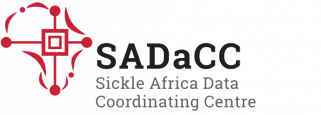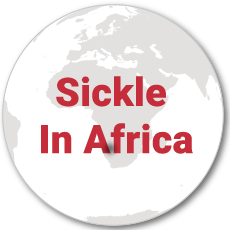 Prof. Guindo is a Professor of Hematology at the University of Bamako, and in addition to the PharmD degree, he obtained a PhD from the University of London, did post-doctoral training in the NIAID Laboratory of Malaria and Vector Research under Dr Thomas E. Wellems. He is a member of French society of hematology and an allied member of American society of hematology. In his current role he leads all operations of the CRLD and also serves as an advocate for sickle cell disease care, research and education to the national government. He has a broad background in hematology, with specific training and expertise in red blood cell disorders and screening research and data analysis on sickle cell disease. His research includes sickle cell disease, G6PD deficiency and infections. The purpose of this grant is to improve the quality and duration of life of African people living with sickle cell disease.
Prof. Guindo is a Professor of Hematology at the University of Bamako, and in addition to the PharmD degree, he obtained a PhD from the University of London, did post-doctoral training in the NIAID Laboratory of Malaria and Vector Research under Dr Thomas E. Wellems. He is a member of French society of hematology and an allied member of American society of hematology. In his current role he leads all operations of the CRLD and also serves as an advocate for sickle cell disease care, research and education to the national government. He has a broad background in hematology, with specific training and expertise in red blood cell disorders and screening research and data analysis on sickle cell disease. His research includes sickle cell disease, G6PD deficiency and infections. The purpose of this grant is to improve the quality and duration of life of African people living with sickle cell disease.
Prof. Guindo 's early publications directly addressed the afforded protection of sickle cell gene, hemoglobin C and G6PD deficiency against severe malaria and the mechanism by which that protection occurs. These publications found that sickle cell gene and HbC are associated with high protection against severe malaria by reducing infected erythrocytes cytoadherence to the vascular endothelium and the abnormal display of knobs on erythrocyte containing HbC. These results of natural protection against malaria have changed the design of any malaria vaccine trials. In addition to the contributions described above, with a team of collaborators, he directly documented the issue of the physiopathology of sickle cell disease, transfusion safety, infection in sickle cell disease and the referral values in hematology in Mali. These work allowed to shed light on the field of research in hematology as well as in improving the quality of care.


 Dr Ackerman is an NIH-Lasker Clinical Research Scholar, Clinical Tenure Track Investigator, and Chief of the Physiology Unit within the Laboratory of Malaria and Vector Research, National Institute of Allergy and Infectious Diseases.
Dr Ackerman is an NIH-Lasker Clinical Research Scholar, Clinical Tenure Track Investigator, and Chief of the Physiology Unit within the Laboratory of Malaria and Vector Research, National Institute of Allergy and Infectious Diseases. Dr. Ruhl is a pulmonologist in the Physiology Unit, Laboratory for Malaria and Vector Research, NIAID and the Pulmonary Branch, NHLBI. She is the team leader for clinical research efforts within a translational research program focused on the role of alpha thalassemia in vascular disease, including the effects of alpha globin gene variants on renal function, malaria and in people living with sickle cell disease. She is screening subjects for variations in alpha globin gene variants and collecting biospecimens in order to identify and describe the underlying changes in pathophysiology, including vascular phenotypes, based on alpha globin gene variants.
Dr. Ruhl is a pulmonologist in the Physiology Unit, Laboratory for Malaria and Vector Research, NIAID and the Pulmonary Branch, NHLBI. She is the team leader for clinical research efforts within a translational research program focused on the role of alpha thalassemia in vascular disease, including the effects of alpha globin gene variants on renal function, malaria and in people living with sickle cell disease. She is screening subjects for variations in alpha globin gene variants and collecting biospecimens in order to identify and describe the underlying changes in pathophysiology, including vascular phenotypes, based on alpha globin gene variants.